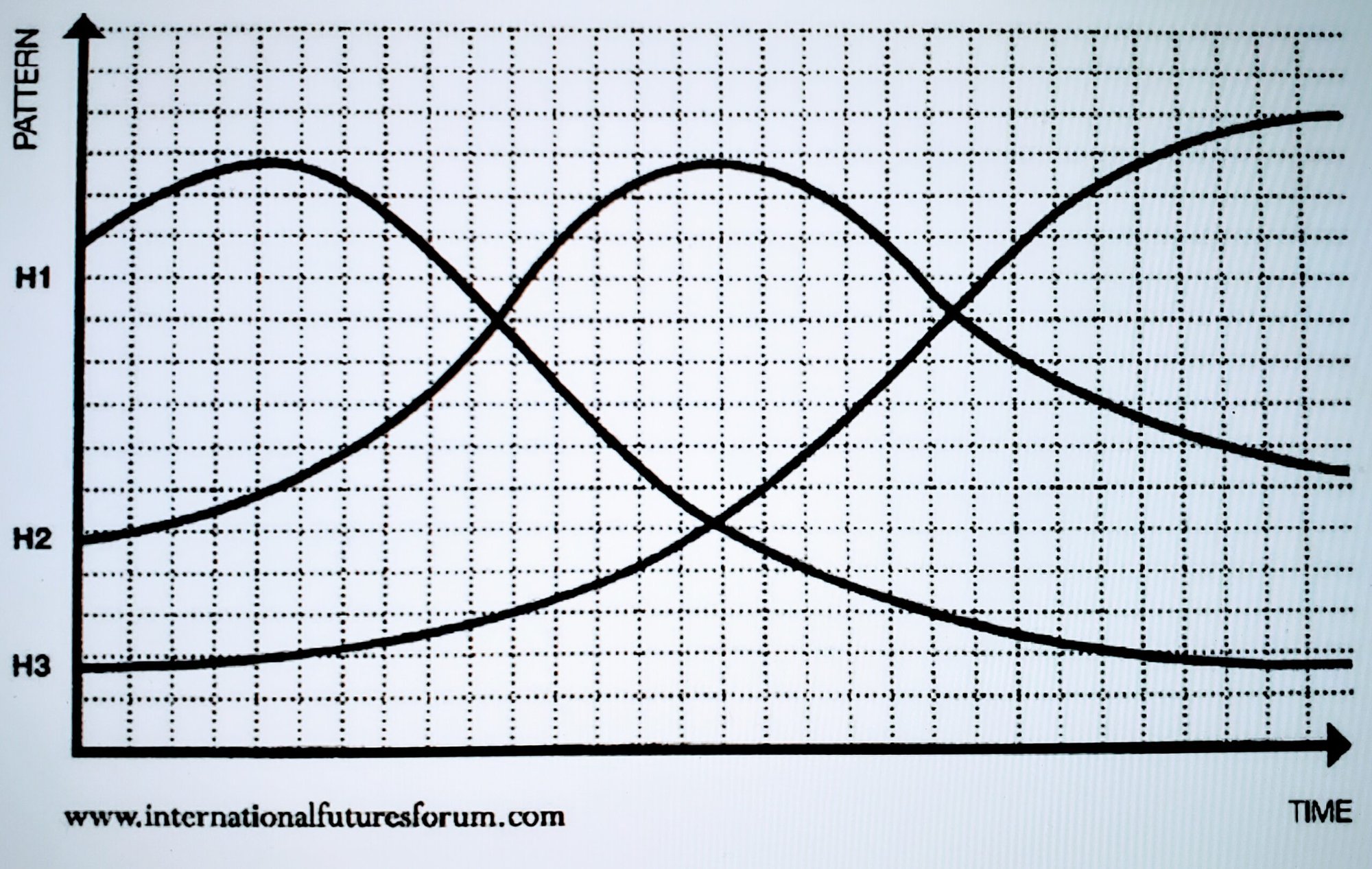By nature, most of us are either past, present or future oriented. We hold on to the legacy of yesterday, plod forward with today’s priorities or pursue a vision of a better tomorrow. Depending on our natural wiring, these orientations influence the way we navigate change and the way we welcome innovation. Through which lens do you see the world?
Past Orientation
Change Management: “Moving forward can’t happen until we’ve honored what has been lost.”
Innovation: “History is packed with lessons that teach us how to solve problems like this one.”
Present Orientation
Change Management: “Let’s regroup and refuel to prepare for whatever lies ahead.”
Innovation: “Focus on the steps we need to take today to make tomorrow possible.”
Future Orientation
Change Management: “Embrace the opportunities our new circumstances ignite.”
Innovation: “New problems require new solutions. Let’s explore and see what unfolds.”

Bill Sharpe from the International Futures Forum uses the 3-Horizons model to describe default mindsets. Past oriented people (H1) tend to see present and future oriented teammates as risky or irrelevant. Present oriented people (H2) tend to see past and future oriented teammates as obstructive or impractical. Future oriented people (H3) tend to see past and present oriented teammates as dinosaurs or compromising.
All three perspectives are vital for managing change and innovating effectively. Let’s challenge mindsets. What if the past oriented person saw present and future oriented teammates as having good ideas and providing hope? What if the present oriented person saw past and future oriented teammates as supportive and inspiring? What if the future oriented person saw past and present oriented teammates as protectors of our heritage and as allies?
Now we have a team. Everyone’s perspective matters. Managing change and innovating solutions to new problems requires more than the collaboration of all three natural proclivities. Navigating team challenges demands that each mindset is valued as a condition for productive interdependence. We need everyone on this team.

